Urbanization activists from around the world visited Toronto’s revitalized Regent Park recently to mark the launch of the World Urban Pavilion and at the same time recognize the role of developer Daniels in helping to transform the once distressed community.
The pavilion is both an in-person hub and a virtual knowledge exchange platform focused on accessible housing, green construction, urban equity and sustainable urban growth.
The project, now billed as the World Urban Pavilion in Regent Park Powered by Daniels after the builder donated $3 million, was founded by the Urban Economy Forum, UN-Habitat, Canada Mortgage and Housing Corporation (CMHC) and The Daniels Corporation. The 4,000-square-foot space at 660 Dundas St. E. will host in-person meetings, exhibitions and demonstrations and will showcase the Regent Park project as an example of community redevelopment done right, Toronto Mayor John Tory said in a video message, echoing others including Reza Pourvaziry, chair of the Urban Economy Forum.
“Today, with the opening of the World Urban Pavilion, Canada is poised to lead the global dialogue on resilience and sustainability,” said Pourvaziry at the April 21 event, noting the think-tank will encourage greater dialogue on best practices on innovation in urbanization. “All of this is happening right here in Regent Park.
“This acknowledges the global challenges caused by rapid urbanization.”
Sixteen years ago Daniels signed on to a partnership with Toronto Community Housing to undertake phases one, two and three of the 69-acre revitalization project. The community, bordered by River Street, Queen Street East, Gerrard Street and Parliament Street, had become a symbol of poorly designed social housing, lacking in socio-economic diversity, but within the last decade, guided by the Regent Park Neighbourhood Association (RPNA), Regent Park has blossomed with amenities.
Among them: a six-acre community park; the Regent Park Community Centre, featuring recreation facilities, an employment hub and a child care centre; the Regent Park Athletic Grounds; the Pam McConnell Aquatic Centre; an arts centre called the Daniels Spectrum; and the Toronto Birth Centre and the Dixon Hall Youth Centre.
St. Michael’s Hospital has also opened the Sumac Creek Health Centre, numerous local and national retailers have set up shop and other cultural and artistic programs have also found a new home.
RPNA representative Marlene DeGenova noted Regent Park now has 10,000 residents with over 30 languages spoken, with community votes on important issues split 50:50 between community housing and market residents.
“The residents on this tract of land have struggled with poverty, inequity, stigmatization and the misguided attempts by various politicians to bring them reforms and solutions to solve our community problems,” DeGenova said. “But this time with meaningful resident engagement and consultation we are determined to get it right.
“We are now a fully mixed-use, mixed-income community…That’s an enormous change.”
The Daniels Corporation president and CEO Mitchell Cohen said the Regent Park project has attracted interest from the community development industry for a long time with Daniels staff often pressed into hosting tours. That will only accelerate with the focus on the World Urban Pavilion.
“People say, how did this happen? What are the principles of revitalization that people from the community established in the mid-1990s that led to this outcome?” he said. “So for us it is the culmination of a lot of work over the past 16 years in partnership with the City of Toronto and others.”
Cohen said Daniels uses its platform to foster progressive social change.
“It’s kind of an all-encompassing approach. We build buildings but more important to us is building community. The work we’ve done in Regent Park over the last 16 years is learning how to bring the social infrastructure together with the physical to ensure we can create a healthy neighbourhood.”
Cohen said he comes from an affordable housing background and that remains at the top of the Daniels agenda.
“Today is a manifestation of that in a large way because the world is looking at what’s happening here in Regent Park.”
Other notables in attendance at the grand opening included Romy Bowers, president and CEO of the CMHC; Lieutenant Governor Elizabeth Dowdeswell; Rafael Tuts, director of global solutions of the UN-Habitat; and University of Toronto professor Matti Siemiatycki, director with the School of Cities.
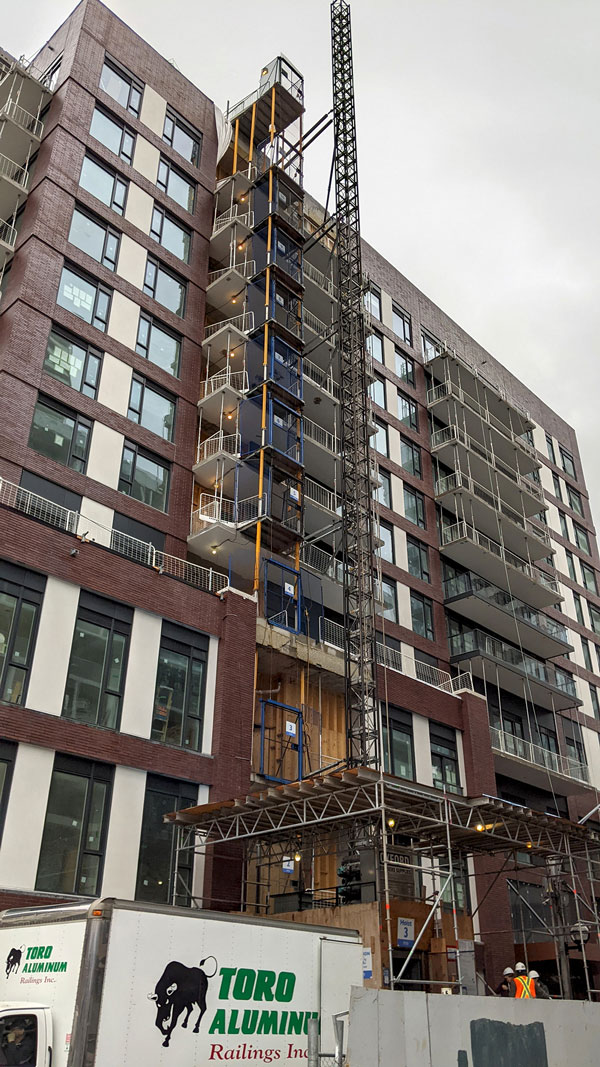
1/3
DON WALL - Regent Park remains a hub of demolition and redevelopment activity well into the second decade of the community revitalization plan.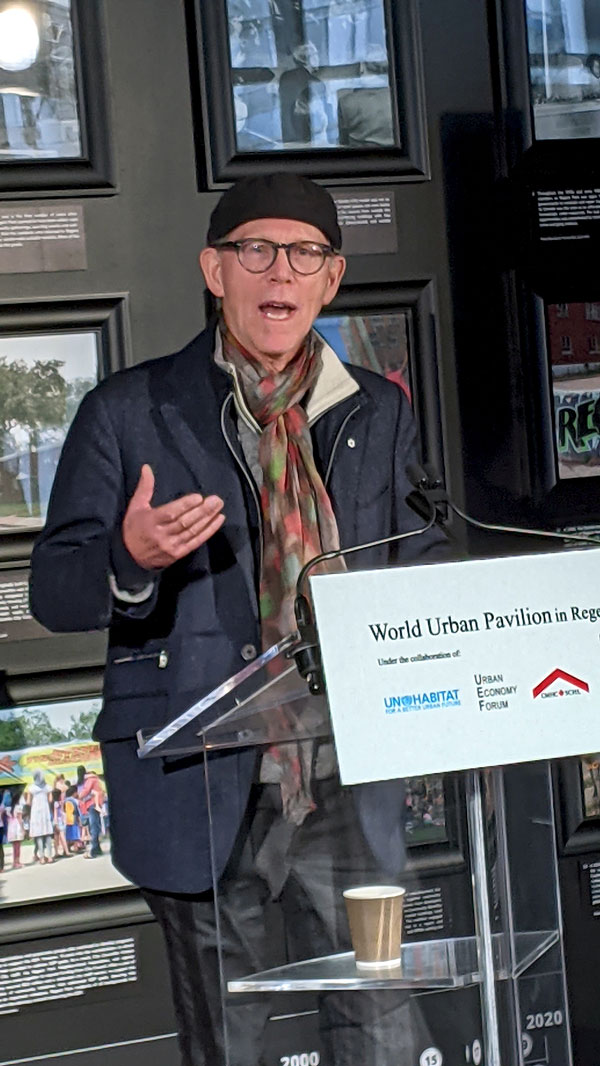
2/3
DON WALL - Daniels Corporation president Mitchell Cohen addressed guests attending the grand opening of the World Urban Pavilion in Toronto’s Regent Park community April 21.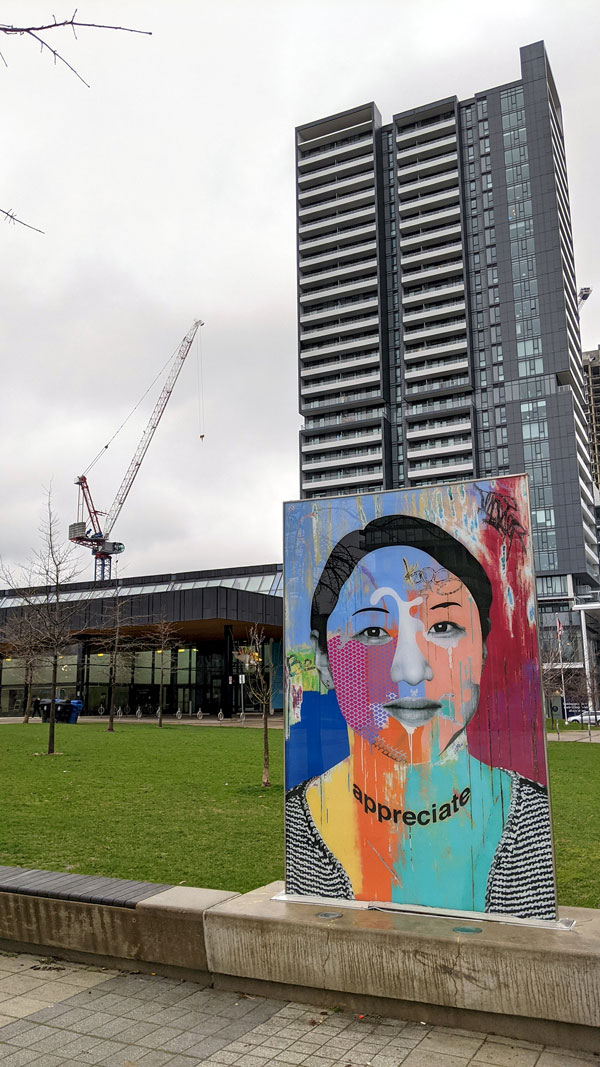


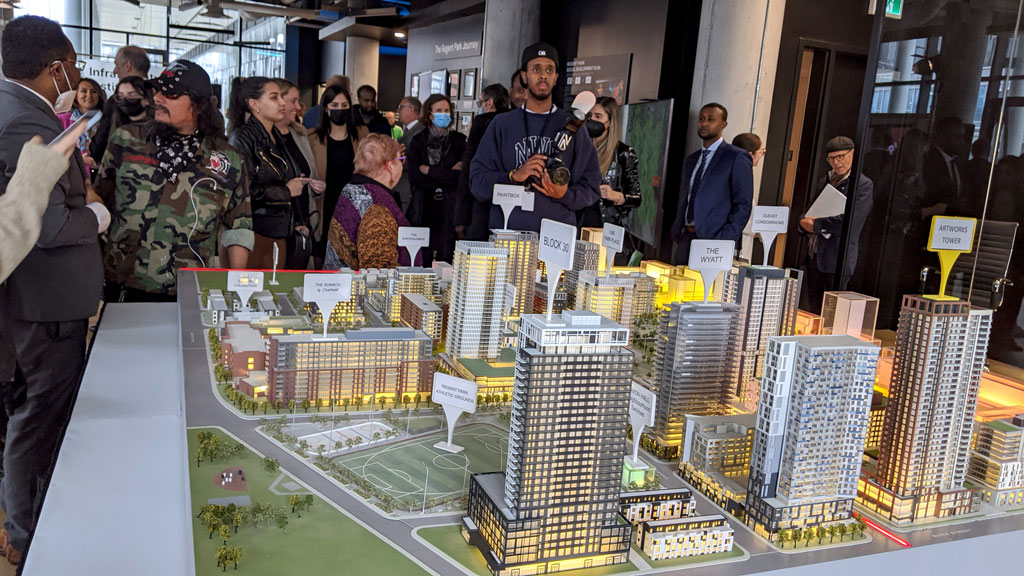



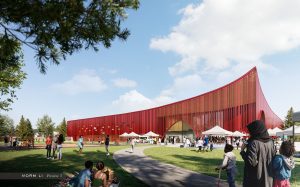

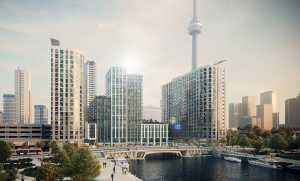


Recent Comments
comments for this post are closed